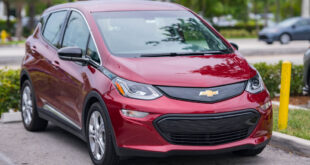EV Charging Costs Explained: Everything You Need to Know Electric vehicles (EVs) are becoming a popular choice for eco-conscious drivers, but one common question remains: What does it cost to charge an EV? Understanding EV charging costs is essential for making an informed decision. This comprehensive guide will break down the factors that impact EV charging expenses, compare them to traditional fuel costs, and offer practical tips to save money.
What Determines EV Charging Costs?
- Type of Charger
- Level 1 Chargers: These are standard home outlets. Charging with these is slower but more affordable.
- Level 2 Chargers: Often installed at homes or public stations, these provide faster charging but may incur higher installation or usage costs.
- DC Fast Chargers: Found at public stations, these charge quickly but at premium rates.
- Electricity Rates
Electricity prices vary by region, time of use, and provider. Many providers offer EV-specific plans with lower rates during off-peak hours. - Battery Size
The larger the battery, the more energy it requires. For example, a battery with 60 kWh will cost less to charge than one with 100 kWh, assuming the same electricity rate. - Charging Location
- Home Charging: Offers the lowest rates and maximum convenience.
- Public Charging Stations: Prices vary widely, with some offering free charging and others charging per kWh or minute.
- Workplace Charging: Often provided as a perk by employers, sometimes at no cost.
How to Calculate EV Charging Costs
Use this formula:
Cost = Battery Size (kWh) × Electricity Rate ($/kWh)
For example:
- A 60 kWh battery charged at $0.15/kWh costs $9.
- A 100 kWh battery at the same rate costs $15.
Comparing EV Charging Costs to Gasoline
EVs are generally cheaper to operate than gasoline-powered vehicles. For instance:
- Charging an EV with a 250-mile range might cost $10-$20.
- Refueling a gas car with the same range can cost $30-$50, depending on gas prices.
10 Tips to Reduce EV Charging Costs
- Charge During Off-Peak Hours
Many utility providers offer discounted rates during nighttime. - Use Solar Panels
Generating your own electricity can significantly reduce costs. - Install a Level 2 Charger at Home
While the upfront cost is high, it saves money long-term. - Find Free Charging Stations
Apps like PlugShare can help locate free public chargers. - Join Membership Programs
Many charging networks offer discounts to members. - Optimize Battery Usage
Avoid overcharging and keep your battery between 20%-80%. - Monitor Electricity Plans
Switch to an EV-friendly electricity plan if available. - Avoid Idle Time Fees
Some public stations charge extra if your car remains plugged in after charging. - Take Advantage of Employer Perks
Use workplace charging if available. - Combine Trips
Reduce overall mileage to minimize the need for frequent charging.
10 Frequently Asked Questions (FAQs)
- How much does it cost to charge an EV at home?
It depends on your electricity rate and battery size, but typically $5-$15 per full charge. - Are public chargers more expensive?
Yes, especially fast chargers, but some offer free charging. - How long does it take to charge an EV?
Charging time ranges from a few hours to overnight, depending on the charger type. - Can I use solar energy to charge my EV?
Yes, installing solar panels can make charging virtually free after installation costs. - Is home charging cheaper than public charging?
Usually, home charging is more economical. - Do electricity rates vary for EV charging?
Yes, some utilities offer EV-specific plans with lower rates. - What is the lifespan of an EV battery?
Most EV batteries last 8-15 years, depending on usage and maintenance. - Can I charge an EV using a regular outlet?
Yes, but it’s slower compared to Level 2 or DC fast chargers. - Are there apps to locate charging stations?
Yes, apps like PlugShare, ChargePoint, and Electrify America are popular. - Do all EVs support fast charging?
Not all models support fast charging; check your vehicle’s specifications.
Conclusion
Understanding EV charging costs is key to enjoying the full benefits of electric vehicles. By considering factors like electricity rates, charging location, and battery size, you can optimize your charging strategy and save money.
Switching to EVs not only benefits the environment but also reduces long-term expenses compared to traditional gasoline vehicles. As infrastructure and technology continue to evolve, owning an EV will only become more cost-effective and convenient.
 oto car insurance used car repair
oto car insurance used car repair
